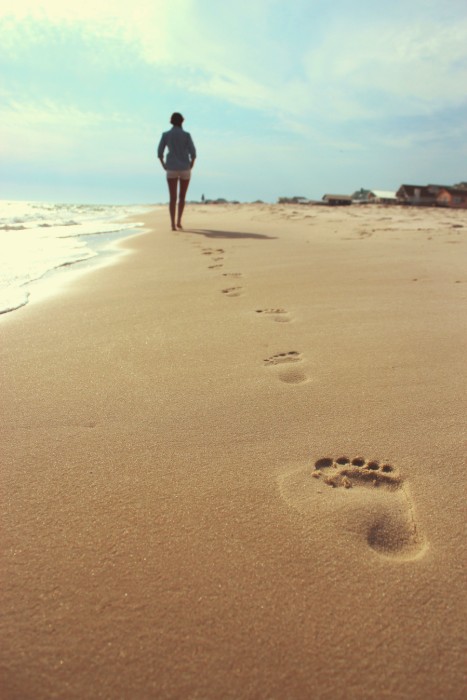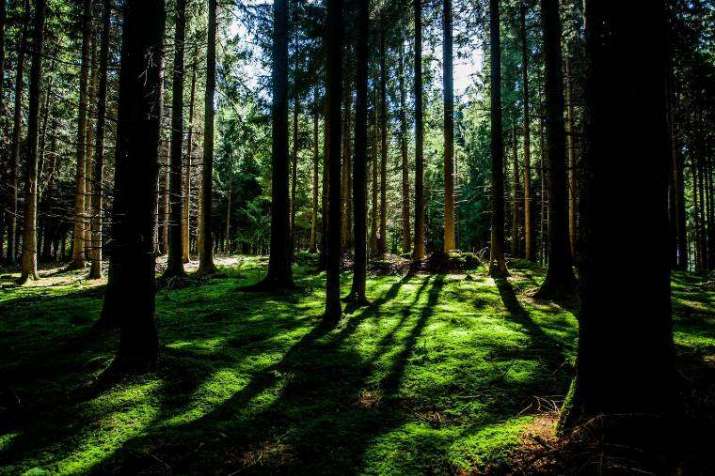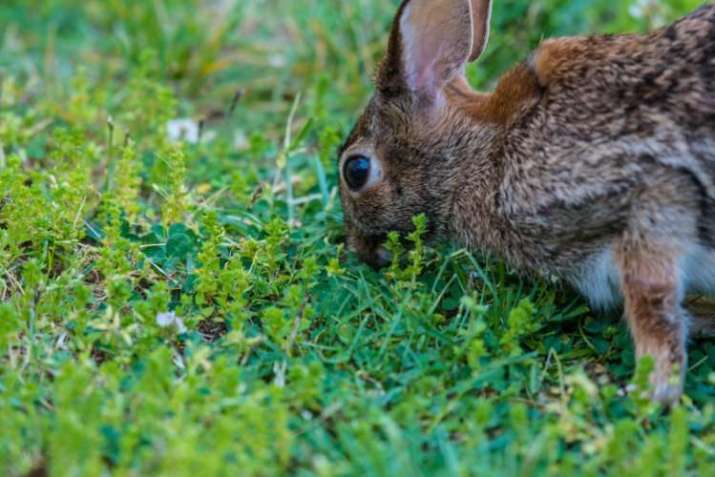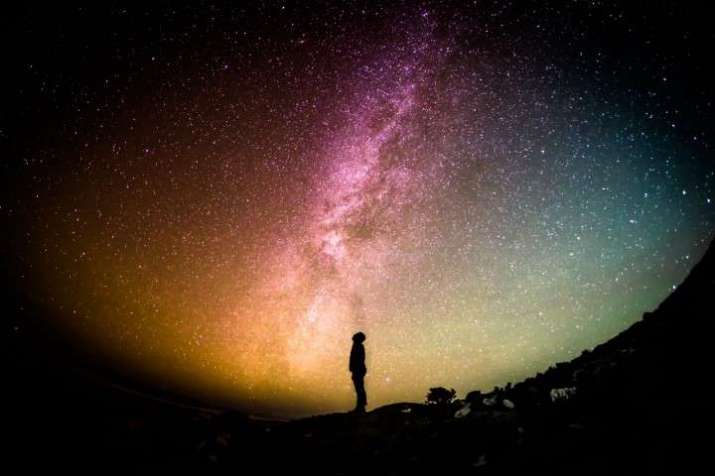FEATURES|COLUMNS|Creativity and Contemplation
Ten Simple Ways to Cultivate Joy and Health this Decade
 Photo by Eye for Ebony
Photo by Eye for EbonyBreathe deeply
In Being Peace (Parallax Press 2005), Thich Nhat Hanh says: “Breathing in, I calm body and mind. Breathing out, I smile. Dwelling in the present moment, I know this is the only moment.” Our entire existence as human beings is dependent upon our breath. If we practice yoga, meditation, dance, walking, or any other form of movement practice, we attend to the movement of our in-and-out breaths. It is said that there are a certain number of breaths allotted to each one of us during our lifetime and so some breathing practices emphasize longer, slower, deeper breaths to support longevity. Conscious awareness of the breath lets us witness the passing of time and allows us to remain timelessly in the present. Aware of the rising and falling of our chests, the sensations in our body, and the calming of our minds and hearts is the true essence of being peace. This simplest of all practices, whether we consider it spiritual or the very foundation of being a human animal alive upon the planet, is the basis for healing and joy for ourselves and for everyone we encounter.
 Photo by Aatik Tasneem
Photo by Aatik TasneemSmile for no reason, especially at others
Have you ever wondered why being around children who smile frequently makes you smile more often?*
As the saying goes, smiling is contagious. Even if smiling at someone who is suffering greatly, if it is offered with true compassion and heartfulness it can only heal, even if the healing comes with time. Scientific research shows in abundance that smiling changes our physiology, chemistry, and experience of the present. In particular, smiling when one is sad, lonely, or confused can bring about a subtle change toward pleasant feeling states. Smiling is our birthright! I have read that babies smile in the womb and are often born smiling. Being in the presence of a joyful child is most wonderful when we recall that we are also still children ourselves and draw upon this essential wisdom at the body and heart level.
Walk more often
We were made to walk. Walking is a form of meditation, and a natural expression of being embodied. If you have ever spent extended time ill, or injured, or in a hospital, then you know that when recovered, nothing is more rewarding and pleasurable than merely being able to walk on one’s own, breathing in and out, moving one’s limbs through space. It is something we often take for granted and perhaps neglect by spending too much time seated or driving or lazing on the couch. Walking is good for the spirit, the body, the mind, and for our connection to others and the literal Earth under our feet. Many people feel that walking barefoot in the woods or on the beach is very therapeutic and brings us back to our basic animal nature, connected deeply to the elements all around us. Let us not forget this basic birthright and human capacity to move with our own strength and will for the sheer joy of it and for communion in nature.
As Thoreau so eloquently put it: “When we walk, we naturally go to the fields and woods: what would become of us, if we walked only in a garden or a mall?”**

Photo by Zack Minor
Use reusable daily items
This may seem like an odd item in this list of 10, however what brings joy and help to ourselves, our communities and the animal world is our careful attention to all of our interactions with our environment. There is simply no excuse for us to keep using items that degrade and destroy the ecosystem. We can definitively stop manufacturing plastic bags, bottles, and cutlery for good. There are now so many viable alternatives: bamboo, edible starches, biodegradable materials, compostables, metal, wood, and more. In what I call the triad of compassion, human beings, animals, and the environments we share are all deeply affected by our daily choices, based on either our careful attention or our lack thereof. Here is a link to a few simple, easy, even delightful ways we can make our impact on the Earth and all her creatures less harmful and more helpful.***
 Photo by Vicky Ng
Photo by Vicky NgPrayer through active ecological restoration: plant trees and flowers
“You carry Mother Earth within you,” says Thich Nhat Hanh. “She is not outside of you. Mother Earth is not just your environment. . . . it is possible to have real communication with the Earth, which is the highest form of prayer.” (Being Peace) From a spiritual point of view, no matter what one’s specific view is, it is an essential practice to engage in prayer. In eco-spirituality, active prayer for the Earth could be planting trees to restore planetary health and planting flowers for the bees, who are so essential to the triad of compassion and who (like all creatures) deserve to thrive for their own sake. For every degradation caused by human beings, there are myriad ways for us to engage in active restoration through prayer and practice in our world.
 Photo by Sven Schlager
Photo by Sven SchlagerRevere water and each element
Teach me how to trust my heart, my mind, my intuition, my inner knowing, the senses of my body, the blessings of my spirit, teach me to trust these things so that I may enter my sacred space and love beyond my fear and thus walk in balance with the passing of each glorious sun. (Lakota prayer)****
In so many indigenous traditions around the world, spiritual practices are rooted in the connection between human beings and the elements of the Earth and the environment, inextricably connected to ancestors, lineage holders, wisdom teachers, and spiritual beings. The elements themselves, water, earth, fire, air, wood, and space, are imbued with sacred qualities and origins. I closely witnessed the fortitude and deep connection of the Lakota Sioux people in their struggle to protect the water source on their sacred land from theft and pollution. I was humbled to witness the antagonism between the forces of protection and human ignorance. Our human ignorance and shortsightedness often defy imagination. Each and every living inhabitant of this earth we share must uphold the sacred bond that we have with the elements of the earth, and care for them as we would our own body.
 Photo by Tim Marshall
Photo by Tim MarshallCultivate meaningful daily interactions with humans
[There is a] radical decline of empathy due to social media. Buddhism teaches that our personal problems and the problems of the world are best solved through the application of great compassion. It is our most powerful tool for ending human suffering. (Ron Epstein, Responsible Living: Explorations in Applied Buddhist Ethics)
There is little need to emphasize the downside of our overreliance on social media and screen time, which isolates us from others and even our own hearts. The more we leave the building—walk in nature, see others face to face, smile, exchange a few kind words—the more we will help to heal ourselves and cultivate joy in all our interactions.
Enjoy a creative form—even singing in the shower!
Creativity is a great blessing and everyone has the capacity to create. This may be as simple as humming a tune made up on the spot, or doodling in a notebook, or playing a spontaneous game with children. Even interacting with an animal, however briefly, and remembering what it was like to see from a child’s perspective the wonders all around us. When I taught art to grade schoolers, I always taught that the world is not split into artists and non-artists. Each of us has the impulse to express, move, create, reflect, or make subtle connections between what we experience in the privacy of our own mind, whether or not we ever share it with others. As the American poet, singer, and civil rights activist Maya Angelou put it: “You can't use up creativity. The more you use the more you have.”*****
 Photo by Nathan Anderson
Photo by Nathan AndersonBuy cruelty-free products
Leaping Bunny is an amazing organization that puts at our fingertips all kinds of products that we may need or want and immediately be able to access, knowing that these products will not be dependent on experimentation on or cruel treatment of animals. I urge readers to add this app to your smartphone or read through their website. With small adjustments to our lifestyles we can reduce harm and increase the benefits for animals all over the world.
Help an animal being
The softer your heart is the less that your past is forming your presence and your future. When there is openness and softness of heart, what forms the present and the future is not your past but the reality of your own being. (John de Ruiter) ******
As an author of a book about helping animals I am passionate about this topic, especially in educating people that being kinder toward animals cannot only be easy for us but very joyful, healing, and ultimately co-beneficial. The triad of compassion is magical, as actions and prayers we make to benefit animal beings result in benefit for human beings and our shared environments.
Wishing you the utmost joy, health, and awakening in this new decade where opportunities abound for us to be in service to our local and global communities as we care for our own well-being.
 Photo by Greg Rakozy
Photo by Greg Rakozy* Ron Gutman, “The Untapped Power Of Smiling” Forbes 22 March 2011.
** 1862. “Walking.” The Atlantic.
*** 8 Eco-Friendly Things You Should Always Have in Your Bag (apartment therapy)
**** From Pillow, William. 2008. Love and Immortality: Long Journey of My Heart. New York: iUniverse, Inc.
***** Ardito, Mary. 1982. “Creativity: It’s the Thought that Counts.” Bell Telephone Magazine, Volume 61, Number 1, page 32. New York: American Telephone and Telegraph Company.
****** “One Touch of Meeting” JdR Podcast 113
Sarah C. Beasley (Sera Kunzang Lhamo), author of Kindness for all Creatures: Buddhist Advice for Compassionate Animal Care (Shambhala 2019), has been a Nyingma practitioner since 2000, a certified educator, and an experienced writer and artist. She has a BA in Studio Art and an MA Candidate in Educational Leadership. Sarah spent close to seven years in traditional retreat under the guidance of Lama Tharchin Rinpoche and Thinley Norbu Rinpoche. With a lifelong passion for wilderness, she has summited Mt. Kenya and Mt. Baker, among other peaks. Her book and other works can be seen at www.sarahcbeasley.com.
References
Epstein, Ron. 2018. Responsible Living: Explorations in Applied Buddhist Ethics—Animals, Environment, GMOs, Digital Media. Ukiah, CA: Buddhist Text Translation Society.
See more
Keep animal testing out of your shopping cart (The Humane Society of the United States)
Why carrying your own fork and spoon helps solve the plastic crisis (National Geographic)
Related features from Buddhistdoor Global
How does it serve others?
A Reminder of the Power of Grounding
Metta Puts the Kettle On














